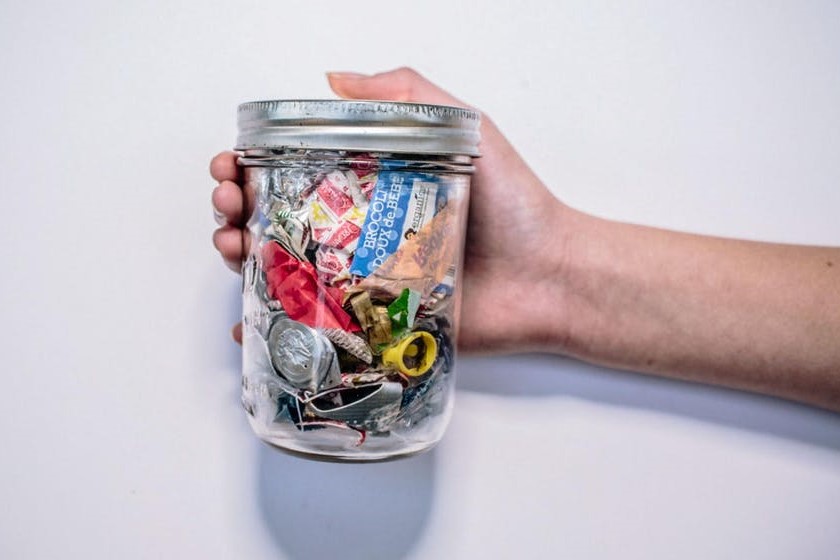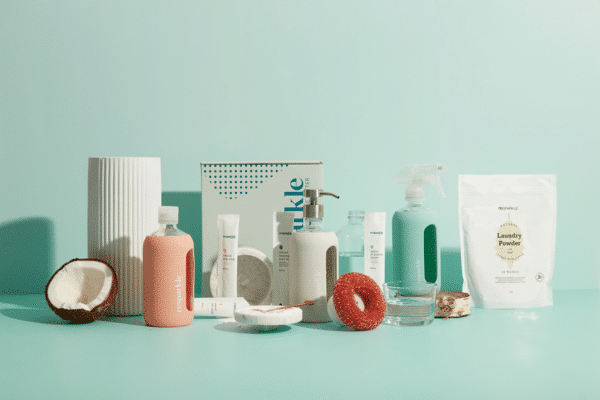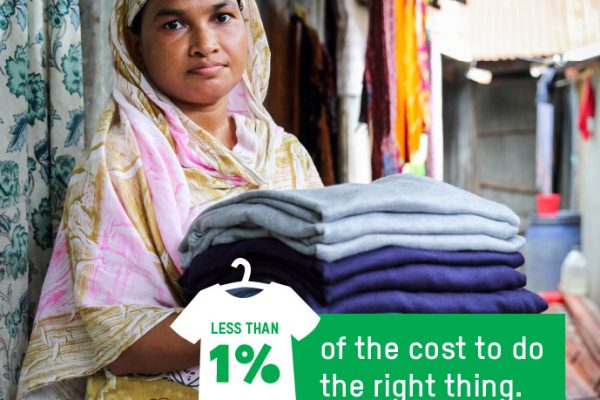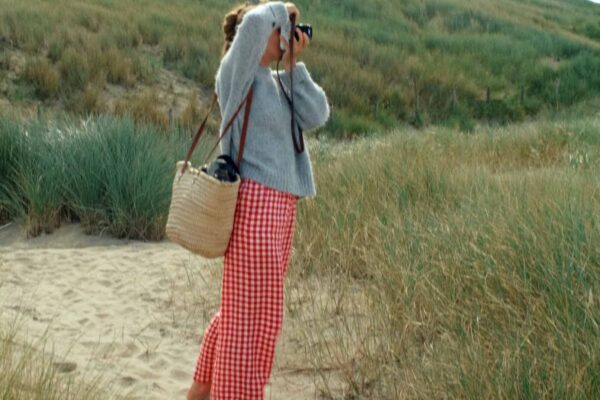Keeping Your Trash in a Jar is Not Going to Save the Planet – A Realists Guide to Living Zero Waste
Kate Hall
I once idolised ‘zero-wasters’ who could keep all their trash in a jar for a whole year.
I would gawk at their intensive efforts to look after our planet and got close to making full-blown shrines in their honour (well, maybe not quite). To me, they were the epitome of what it meant to live sustainably.
Now? I ignore them.
To be honest, I think keeping your trash for the year in a jar, is a waste of time, and it’s not going to save the planet.

YOUR TRASH BIN DOES NOT CONTAIN ALL YOUR TRASH
There’s a common myth that the waste you produce, can be totaled by what you find in your trash bin.
It’s not. Therefore, trash-jar users, have some explaining to do.
If you own a car, how will you fit your old tyres or windscreen wipers into that one tiny trash-jar? Or when your accountant is filing your paperwork, but accidentally hits the print button 5 times and throws the excess paper in the rubbish bin… what happens then?
Do trash-jar users make excuses for things like condoms, receipts, or gifts?
The trash you see in front of your eyes is just the tip of the iceberg. You have no idea of the waste created ‘upstream’, existing long before each product came into your life. Keeping your trash in a jar helps to focus on limiting your household trash, and that’s great. But it can fool you into thinking that’s all you have to worry about.
https://www.instagram.com/p/BvDfZURlz9U/
BULK BIN STORES MAY NOT BE BEST
I’m sorry to break it to you, but the almonds you scooped into your beautiful organic cotton bulk bin bag, may not be as wonderful as you think. I once witnessed a store worker empty multiple 50-gram bags of almonds into bulk bin tubs. I’m not making this up!
Until you ask your local bulk bin store, you have no idea if they are doing this too. Your food may look ‘zero waste’ to you, but you have no idea how it got there until you ask and trust the supplier.
And eating out? You can’t trust this either. I’m certain trash-jar users don’t waltz into the kitchen of every restaurant they eat at and ask to take their trash home to put in their trash-jar. If they did: their jar may be full after day one.
https://www.instagram.com/p/BuE2ShhhZe1/
A JAR IS INTIMIDATING
For those who put an overflowing 240-liter bin out on the curb every week for collection, a tiny jar for an entire year sounds like a joke; something only extremists could accomplish. Trying to become a member of the exclusive trash-jar club is overwhelming to the average person living in the western world.
Rather than inspire waste reduction, the idea of a trash-jar can scare people so much that they end up ignoring the entire ‘zero-waste’ movement altogether. That’s not helpful in the slightest; it’s actually detrimental to their ‘eco-journey’.
THINK BIGGER
Let’s not beat around the bush: our planet is coated in plastic and filled with waste. Rubbish is inescapable. So, although it can be empowering to see one small jar of trash represent the waste of an individual for a year, we need to focus on the bigger issues at large.
Let’s put more energy into changing the systems themselves, adjusting global laws, and making ‘upstream’ changes rather than individual triumphs.
Of course, it’s important we consider our individual waste while we do this, but we can’t stop there. Your impact on the planet is bigger than a jar, so own it, but do something about it.
Instead of focusing on what’s in front of you, and crying when a straw is accidentally put in your cocktail and you’re forced to do the walk of shame to your trash jar, make your impact greater.
Here are some ideas to get you started:
- Sign petitions
- Email brands directly (asking them to change)
- Join a protest
- Become part of your local government board/committee
- Start a local community group
- Vote
- Get vocal online about what you believe in


